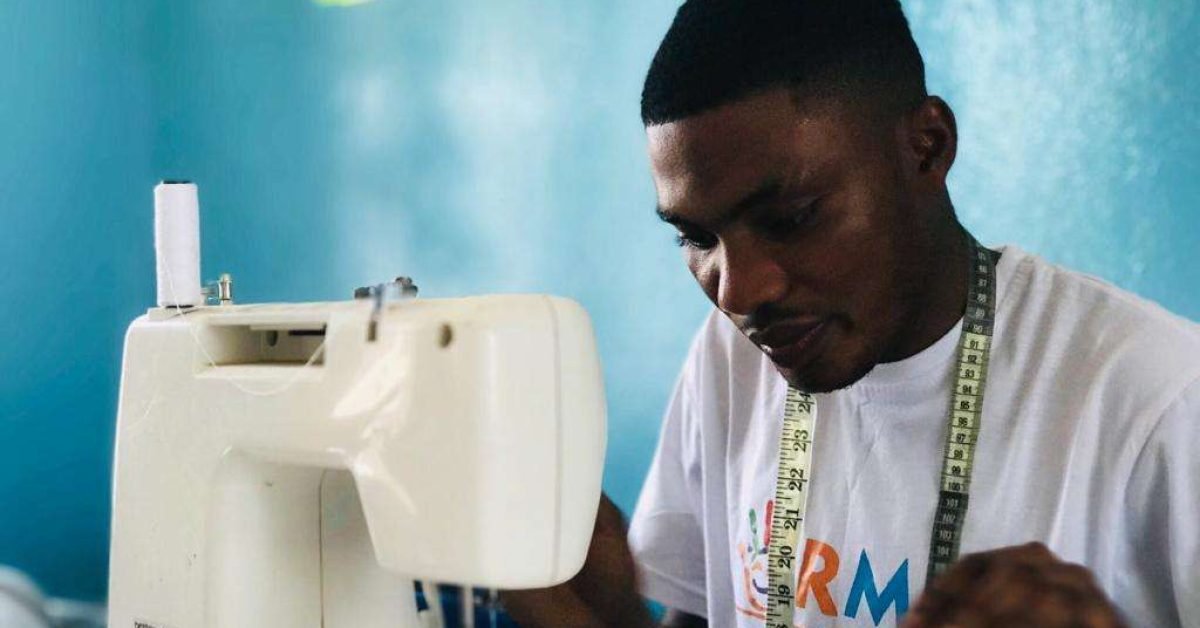Ghana currently faces a youth unemployment rate of 12.6%, with a 49.2% rate of youth underemployment, according to a 2021 Ghana Living Standards Survey. Although the onset of COVID-19 has proven to be a significant contributor to the increasing speed, it is believed that job of job opportunities in the major characteristic. Despite substantial government and private sector investments, this challenge will intensify if job opportunities remain limited.
Ways to support initiatives that focus on youth vocational training
- Financial Contributions: Donate funds to organizations or programs providing youth vocational training. Your financial support can help cover the costs of training materials, equipment, instructor salaries, and infrastructure improvements. Consider contributing to scholarship programs that enable economically disadvantaged youth to access vocational training opportunities.
- Sponsorship and Mentorship Programs: Offer to sponsor a young person’s vocational training by covering their tuition fees or providing necessary resources for their chosen trade. Additionally, you can volunteer as a mentor, sharing your expertise and experiences to guide them through their training and help them navigate career pathways.
- Partnership and Collaboration: Collaborate with vocational training centers, NGOs, or educational institutions focusing on youth vocational training. Offer your expertise, resources, or connections to support their programs. For example, you could provide guest lectures, facilitate workshops, or assist in developing curriculum content.
- Internship and Apprenticeship Opportunities: Establish partnerships between vocational training programs and local businesses or industries. Advocate for internships and apprenticeships that allow trainees to gain practical experience in their chosen fields. By creating these opportunities, you contribute to youth’s hands-on learning and skill development.
- Equipment and Material Donations: Vocational training often requires specific tools, equipment, and materials. Donate or help secure donations of these resources to training centers. This can include machinery, tools, computers, textbooks, or even raw materials related to the trade. Providing such resources enables trainees to practice and hone their skills effectively.
- Capacity Building and Training for Instructors: Support the professional development of vocational training instructors. Offer funding or resources for their training programs, workshops, or certifications. By enhancing the skills and knowledge of instructors, you contribute to the quality of vocational training provided to youth.
- Advocacy and Awareness: Raise awareness about the importance of vocational training and its impact on youth employment. Engage in advocacy efforts to promote the recognition and support of vocational training initiatives at the community, regional, and national levels. By advocating for vocational training, you contribute to its visibility and integration within educational and employment systems.
Remember to research and vet organizations and programs before providing support. Look for those with a track record of success, transparent operations, and a focus on sustainable impact. By supporting initiatives prioritizing youth vocational training, you contribute to empowering young individuals, reducing unemployment, and fostering economic growth within communities.
Youth Employment Programs in Ghana
A 2020 World Bank report titled “Youth Employment Programs in Ghana: Options for Effective Policy Making and Implementation” suggests, among other things, emphasizes on the Importance of aligning formal education programs. Skills development initiatives in the context of a fast-changing labor market that requires new and different skill sets. To adapt to new technology.
The premier should receive skills training such as an apprenticeship to eradicate unemployment. But how do we achieve this limestone when poverty has been a blockage to many youths? Do you know you can add your donation to support 20 young women in our rural communities in Ghana to be self-employed and have better lives to feed their families while playing a role in reducing poverty?
Our Focus on young women
Firstly, our focus this year is to raise $3,400 to support and put smiles on the faces of 20 young women in our rural communities in Ghana to be trained in hairdressing, fashion design, and tailoring. A total of $3,400 will put a smile on the faces of 20 young women in our rural communities in Ghana. We have done it before and are determined to do it again.
How can you help our young women
- $75, you can buy one standard sewing machine for a young woman who wants to learn sewing. A total of $1500 can buy 20 classic sewing machines.
- $80 can also buy a normal hairdryer for school dropouts with employable skills. A total of $1600 buys 20 hairdryers for 20 young women after completing their apprenticeship course.
- $300 can pay apprenticeship fees and train 20 young women in hairdressing, fashion designing, and tailoring.
Your kind gesture will help us achieve our dream and reduce poverty which compels women into social vices.







